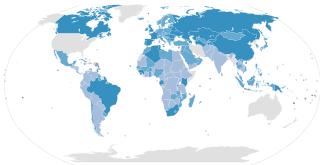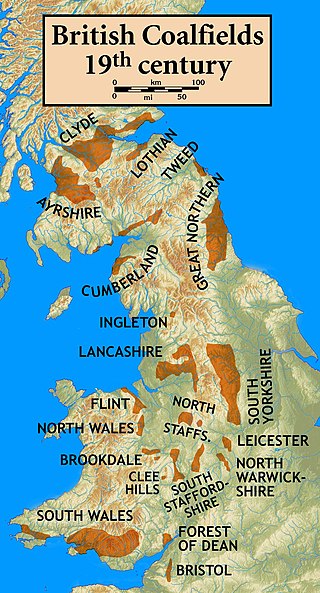
Abortion in the United Kingdom is de facto available under the terms of the Abortion Act 1967 in Great Britain and the Abortion (No.2) Regulations 2020 in Northern Ireland. The procurement of an abortion remains a criminal offence in Great Britain under the Offences Against the Person Act 1861, although the Abortion Act provides a legal defence for both the pregnant woman and her doctor in certain cases. Although a number of abortions did take place before the 1967 Act, there have been around 10 million abortions in the United Kingdom. Around 200,000 abortions are carried out in England and Wales each year and just under 14,000 in Scotland; the most common reason cited under the ICD-10 classification system for around 98% of all abortions is "risk to woman's mental health."

The Sexual Offences Act 2003 is an Act of the Parliament of the United Kingdom.
In the United Kingdom, as in other countries, feminism seeks to establish political, social, and economic equality for women. The history of feminism in Britain dates to the very beginnings of feminism itself, as many of the earliest feminist writers and activists—such as Mary Wollstonecraft, Barbara Bodichon, and Lydia Becker—were British.

The Criminal Law Amendment Act 1885, or "An Act to make further provision for the Protection of Women and Girls, the suppression of brothels, and other purposes," was an Act of the Parliament of the United Kingdom, the latest in a 25-year series of legislation in the United Kingdom of Great Britain and Ireland beginning with the Offences against the Person Act 1861. It raised the age of consent from 13 years of age to 16 years of age and delineated the penalties for sexual offences against women and minors. It also strengthened existing legislation against prostitution and homosexuality. This act was also notable for the circumstances of its passage in Parliament.

The Factory Acts were a series of acts passed by the Parliament of the United Kingdom beginning in 1802 to regulate and improve the conditions of industrial employment.
The ages of consent for sexual activity vary from age 15 to 18 across Australia, New Zealand and other parts of Oceania. The specific activity and the gender of its participants is also addressed by the law. The minimum age is the age at or above which an individual can engage in unfettered sexual relations with another person of minimum age. Close in age exceptions may exist and are noted where applicable. In Vanuatu the homosexual age of consent is set higher at 18, while the heterosexual age of consent is 15. Same sex sexual activity is illegal at any age for males in Papua New Guinea, Kiribati, Samoa, Niue, Tonga and Tuvalu; it is outlawed for both men and women in the Solomon Islands. In all other places the age of consent is independent of sexual orientation or gender.

The legal working age is the minimum age required by law in each country or jurisdiction for a young person who has not yet reached the age of majority to be allowed to work. Activities that are dangerous, harmful to the health or that may affect the morals or well-being of minors fall into this category.
The raising of school leaving age is the term used by the United Kingdom government for changes of the age at which a child is allowed to leave compulsory education in England and Wales as specified under an Education Act.

The Liberal welfare reforms (1906–1914) were a series of acts of social legislation passed by the Liberal Party after the 1906 general election. They represent the emergence of the modern welfare state in the United Kingdom. The reforms demonstrate the split that had emerged within liberalism, between emerging social liberalism and classical liberalism, and a change in direction for the Liberal Party from laissez-faire traditional liberalism to a party advocating a larger, more active government protecting the welfare of its citizens.

A hurrier, also sometimes called a coal drawer or coal thruster, was a child or woman employed by a collier to transport the coal that they had mined. Women would normally get the children to help them because of the difficulty of carrying the coal. Common particularly in the early 19th century, the hurrier pulled a corf full of coal along roadways as small as 0.4 metres (16 in) in height. They would often work 12-hour shifts, making several runs down to the coal face and back to the surface again.

The Children and Young Persons Act 1933 is an Act of the Parliament of the United Kingdom of Great Britain and Northern Ireland. It consolidated all existing child protection legislation for England and Wales into one act. It was preceded by the Children and Young Persons Act 1920 and the Children Act 1908. It is modified by the Children and Young Persons Act 1963, the Children and Young Persons Act 1969 and the Children and Young Persons Act 2008.

The Mines and Collieries Act 1842, commonly known as the Mines Act 1842, was an act of the Parliament of the United Kingdom. The Act forbade women and girls of any age to work underground and introduced a minimum age of ten for boys employed in underground work. It was a response to the working conditions of children revealed in the Children's Employment Commission (Mines) 1842 report. The Commission was headed by Anthony Ashley-Cooper, Member of Parliament, who was styled Baron Ashley at the time, a courtesy title, and would succeed his father as the 7th Earl of Shaftesbury in 1852.
The History of labour law in the United Kingdom concerns the development of UK labour law, from its roots in Roman and medieval times in the British Isles up to the present. Before the Industrial Revolution and the introduction of mechanised manufacture, regulation of workplace relations was based on status, rather than contract or mediation through a system of trade unions. Serfdom was the prevailing status of the mass of people, except where artisans in towns could gain a measure of self-regulation through guilds. In 1740 save for the fly-shuttle the loom was as it had been since weaving had begun. The law of the land was, under the Act of Apprentices 1563, that wages in each district should be assessed by Justices of the Peace. From the middle of the 19th century, through Acts such as the Master and Servant Act 1867 and the Employers and Workmen Act 1875, there became growing recognition that greater protection was needed to promote the health and safety of workers, as well as preventing unfair practices in wage contracts.

The history of labour law concerns the development of labour law as a way of regulating and improving the life of people at work. In the civilisations of antiquity, the use of slave labour was widespread. Some of the maladies associated with unregulated labour were identified by Pliny as "diseases of slaves."
The United Kingdom Mines and quarries regulation in 1910 was a specialised topic in UK labour law, given the complexity of the legislation and seriousness of injuries that people suffered.

Coal mining in the United Kingdom dates back to Roman times and occurred in many different parts of the country. Britain's coalfields are associated with Northumberland and Durham, North and South Wales, Yorkshire, the Scottish Central Belt, Lancashire, Cumbria, the East and West Midlands and Kent. After 1972, coal mining quickly collapsed and had practically disappeared by the 21st century. The consumption of coal—mostly for electricity—fell from 157 million tonnes in 1970 to 18 million tonnes in 2016, of which 77% was imported from Colombia, Russia, and the United States. Employment in coal mines fell from a peak of 1,191,000 in 1920 to 695,000 in 1956, 247,000 in 1976, 44,000 in 1993, and to 2,000 in 2015.

The act 23 & 24 Vict. c. 151, sometimes called the Mines Regulation Act 1860, the Mines Act 1860, the Inspection of Mines Act 1860, the Regulation and Inspection of Mines Act 1860, the Coal Mines Act 1860, the Coal Mines Regulation Act 1860, the Inspection and Regulation of Coal Mines Act 1860, or the Inspection of Coal Mines Act, is an Act of the Parliament of the United Kingdom that raised the age of children working in coal mines from 10 to 12 years of age. There were exceptions if the boys could read and write or attended school for six hours per week. The Act also improved safety rules.









